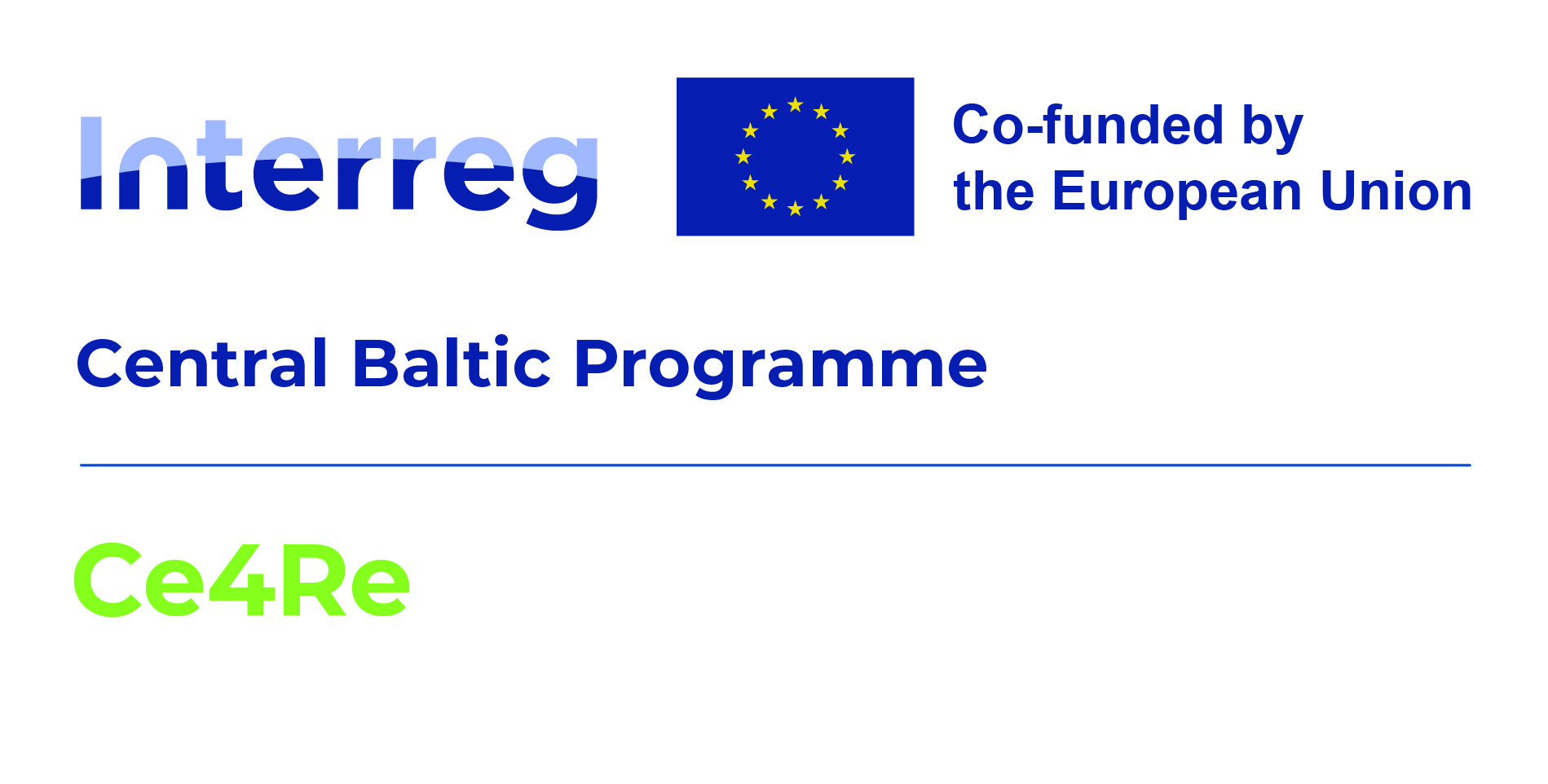Development of joint circular solutions in the CB restaurant sector (Ce4Re)
Resource preservation reduces the human-made negative impact on the environment, lowers costs, and promotes economic sustainability. The transformation of food systems by introducing circular economy principles is one of the most powerful tools for preserving biodiversity and combating climate change.
The restaurant sector, as part of the food system, is a significant industry sector and a complex ecosystem where interconnected stakeholders rely on large flows of natural resources. At the same time, the restaurant sector, which has suffered greatly from the consequences of the COVID-19 pandemic, is seeking new sustainable solutions for industry recovery and rejuvenation. However, there are significant obstacles and challenges for the restaurant sector to transition from a linear to a circular economy model.
The Ce4Re project aims to promote thoughtful resource consumption and waste reduction in catering businesses in the Central Baltic Sea region. To achieve this goal, unified circular economy solutions for restaurants will be developed, including the stages of food procurement, preparation, and presentation.
Throughout the project, interconnected solutions based on the three principles of the circular economy RRR – Redesign, Reduce, and Rethink – will be developed.
In collaboration with restaurants and industry experts, digital tools will be developed to create menus that align with circular economy principles and reduce waste. The “EcoGo” app will be made within the project to promote environmentally friendly restaurants and encourage consumers to reconsider their habits. The proposed solutions will be available to restaurants in the Central Baltic Sea region and beyond.
The added value created by the project will be the incorporation of circular economy principles into an economic sector where the problem of resource-responsible consumption and waste reduction has not been sufficiently recognised and addressed until now. By participating in the project, restaurants can access affordable and easy-to-use solutions that support their effective transition to circular economy principles. As a result, the environmental impact of the restaurant sector will be reduced, waste volumes will be reduced, and business profitability will increase by reducing costs.
In total, 300 restaurants will be involved in the project activities. Sixty restaurants (20 restaurants in each project participating country) will participate in developing and testing the tools.
| Title | Development of joint circular solutions in the CB restaurant sector |
| Abbreviation | Ce4Re |
| Project number | #CB0100058 |
| Programme | Interreg Central Baltic Programme 2021-2027 |
Project partners
- Satakunta University of Applied Sciences (Finland) (leading partner)
- EcoFoodCentre (Sweden)
- Pyhajarvi Institute (Finland)
- Vidzeme Planning Region (Latvia)
Project objectives
Within the project, unified circular economy solutions for restaurants will be developed, encompassing the stages of food procurement, preparation, and presentation, based on three circular economy principles - redesign, reduce, and rethink, to promote thoughtful resource consumption and waste reduction in catering businesses in the Central Baltic Sea region.Activities
1. Preparatory measures Launching a marketing campaign with an open call for restaurants to participate in the project. Development of a preliminary research plan aimed at understanding the current situation and creating a detailed plan to implement and ensure the viability of the developed solutions. Establishing guidelines and objectives. Skill development: Conducting four online seminars in each country, allowing every restaurant to participate; Analyzing cases with best practices on how circular economy principles can be implemented in restaurants. Organizing educational excursions to 15 restaurants participating in solution testing. 2. Development of Circular menu tool The tool includes information on various diets and recipes that expedite restaurants' transition to a circular food system. By using this tool, restaurants increase the quantity of local and seasonal food in their meals. The tool assists restaurants in selecting recipes and ingredients with less waste before and after serving customers, thus increasing economic value. The tool allows for a more precise estimation of ingredient requirements for prepared dishes and portion sizes. 3. Development of Waste reduction toolkit The toolkit is adaptable for daily use, tailored to the needs of small restaurants, and includes features to track waste sources, measure waste quantities, and forecast waste based on daily sales data. 4. Creation of the “EkoGo” marketing App The objective is to boost consumer demand and awareness for circular restaurants. 5. Promotion of circular economy and project solutions Two social media campaigns will be organized in Latvia, Finland, and Sweden to increase awareness of the circular economy and disseminate the “EkoGo” app. The first campaign targets consumers, while the second focuses on restaurants and promotes the Circular Menu Tool and the Waste Reduction Toolkit. 6. Dissemination of project results In Latvia, Finland, and Sweden, closing seminars will be organized. Additionally, a seminar will be held in Estonia in collaboration with the Estonian Hotel and Restaurant Association for Estonian restaurants. A handbook in English will be developed and distributed, encompassing project insights, educational materials, and case studies. The handbook will be translated into the languages of the project' s participating countries.Results
The Ce4Re project will promote the transition to a circular economy in the restaurant sector and the food system in the Central Baltic Sea region, purposefully changing the value proposition in the restaurant industry and its associated food supply chain (e.g., farmers, local food producers, distributors). Number of participants (restaurants) - 60 (20 in each country). In total, 300 restaurants will be involved in the project activities. Three user-friendly and low-cost circular economy solutions will be developed for the Central Baltic Sea region' s restaurant industry to reduce the amount of waste generated by restaurants and change consumer habits: 1) Circular Menu Tool. 2) Waste Reduction Toolkit, 3) the “EkoGo” digital application. To measure the impact, waste reduction will be calculated in kilograms, and the number of restaurants using the solutions will be considered. Cost reduction for restaurant businesses will be calculated by comparing data at the beginning and end of the project.Budget
The total project budget - 1,117,759.60 EUR Vidzeme Planning Region - 195,859.20 EUR:
Implementation period
01.09.2023. – 30.06.2026.
Contacts
Lienīte Priedāja-Klepere
Phone: +371 26133028
E-mail: lienite.priedaja@vidzeme.lv
